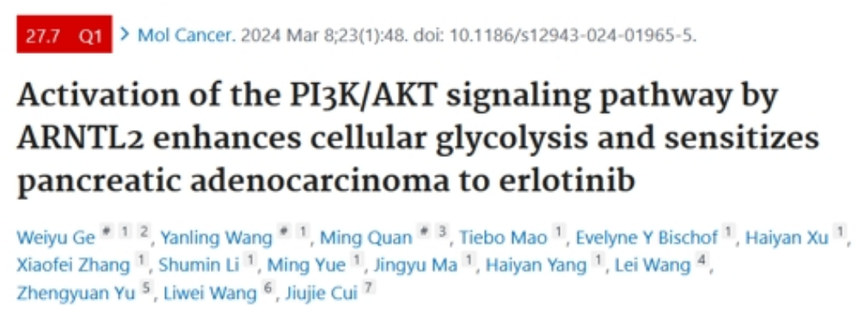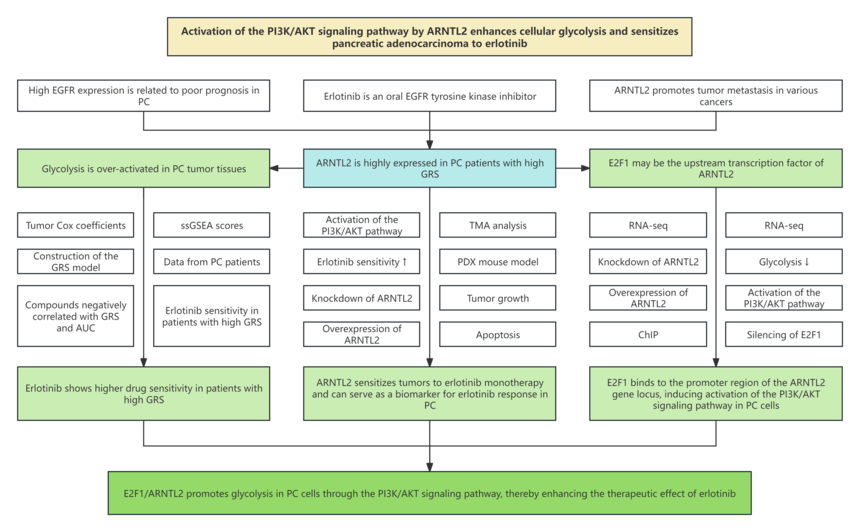Please click the button below to go to our email login page
|
IF of 27.7! “PI3K/AKT + Pancreatic Cancer” reaches new heights in research ideas! Jiujie Cui’s team from Shanghai Jiaotong University discovered new prognostic biomarkers and sensitivity predictors foThe PI3K/AKT signaling pathway is a crucial signaling transduction network within cells, which can be activated by various cellular stimuli or toxic injuries, and play an important role in mediating fundamental cellular functions such as transcription, translation, proliferation, growth, and survival. So, what are some research design ideas regarding the PI3K/AKT signaling pathway?
Next, we will share a paper published in Molecular Cancer, with an IF of 27.7, hoping to provide you with fresh inspiration.
1. Research background 1.1 Pancreatic cancer (PC) is a highly malignant tumor, with chemotherapy as the current main treatment method. 1.2 Epidermal growth factor receptor type 1 (EGFR) is overexpressed in PC and is associated with poor prognosis and tumor progression. 1.3 Erlotinib is an oral EGFR tyrosine kinase inhibitor that has been approved for treatment of non-small cell lung cancer patients. 1.4 ARNTL2 promotes the migration, invasion, and metastasis of tumor cells in various cancers, including breast cancer, colorectal cancer, lung cancer, and PC. However, the clinical significance of ARNTL2 and its correlation with the effectiveness of targeted therapies in PC have not been reported.
2. Technical routes
3. Research results 3.1 Glycolysis is a major risk factor for overall survival in PC patients. 3.2 Identification of erlotinib with higher drug sensitivity in PC patients with high GRS. 3.3 Functional significance of ARNTL2 and EGFR signaling transduction in PC. 3.4 PC cells with high ARNTL2 expression exhibit sensitivity to erlotinib in vitro. 3.5 Knockdown of ARNTL2 limits the response of PC cells to erlotinib. 3.6 Overexpression of ARNTL2 sensitizes PC cells to erlotinib. 3.7 Patient-derived xenografts demonstrate the therapeutic potential of erlotinib in patients with high ARNTL2 expression. 3.8 ARNTL2/E2F1 axis-mediated glycolysis sensitizes PC cells to erlotinib through the activation of the PI3K/AKT signaling pathway.
4. Conclusion The study elucidates that high expression of ARNTL2, a core component of the GRS model, is related to increased sensitivity of PC cells to erlotinib, and that the E2F1/ARNTL2 axis promotes glycolysis in cells through activating PI3K/AKT signaling pathway, thereby enhancing the therapeutic effect of erlotinib. |


